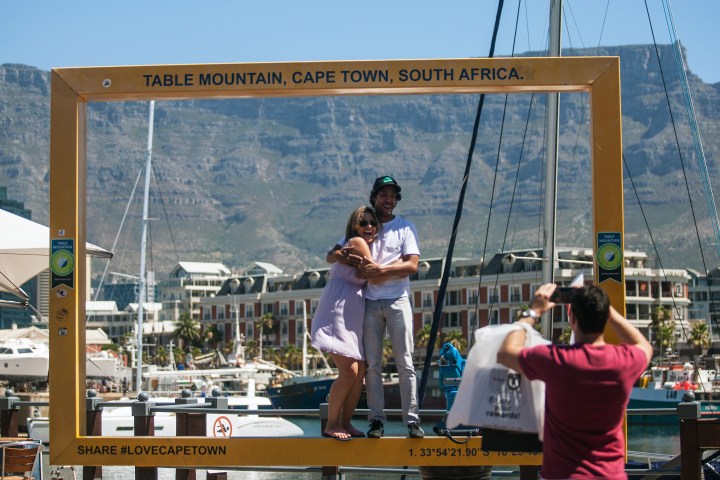Maverick Life Op-Ed
It’s time to take tourism seriously

Within the apparent ‘darkness’ that is the South African economy today, there is one glimmer of light which, if the barriers to its growth were addressed and removed could provide the vital spark to the regeneration of the South African economy and could do so on a sustainable basis.
We are repeatedly told that in the “labour rich” economy that is South Africa we have to provide jobs for a labour force that consists of a large number of poorly or under-educated and unskilled people. We also hear endless talk of the need to take advantage of the fourth industrial revolution but we also live in the reality of a country that has massive unemployment, a country which lives beyond its means and a country in which there is policy uncertainty, corruption and labour practices which combine to discourage inward or even local investment. As a consequence the South African economy is in the doldrums with negligible growth, increasing levels of crime and civil unrest and a poor prognosis.
Yet, there is a glimmer; of hope: the global increase in tourism and the increasing importance of tourism to many of the World’s growing economies where tourism is able to contribute up to 15% of GDP and a similar percentage in terms of jobs.
Tourism is a sector in which South Africa is intrinsically extremely well placed with a wealth of natural attractions, excellent weather and a reasonable tourism infrastructure, but it’s also a sector in which we appear to allow self-inflicted barriers to growth ranging from fears for personal safety as a result of ever-increasing lawlessness to the imposition of restrictive visa and birth certificate regimes.
If we are serious about turning the declining South African economy around we simply have to prioritise Tourism to being a primary pillar of growth and actively address (as opposed to identifying and talking about) the barriers through a concerted effort driven by the private sector acting in partnership with the various layers of Government whose task is simply to deliver an enabling and facilitating operating environment.
Let’s start with the visa and birth certificates for minors under-18 issue. Successful tourism economies do everything in their power to facilitate the influx of tourists. Hopefully, now the “unabridged birth certificate” debacle can now be confined to the archives of “unintended negative tourism consequences” and the mind-set within the National Department of Home Affairs has shifted to one of encouraging inbound tourism rather than creating endless barriers?
An immediate quick win would be to facilitate a simple extension of the visitor visa from 90 to 180 days which could add substantial volume and value as many “northern hemisphere swallows” would happily stay longer if it wasn’t such a task to get the visa period extended once in South Africa and then necessitating the changing of return flights. Really this is a simple administrative switch that would generate volume and value – can’t we just do it?
Turning to the issue of visas, South Africa has lost 10 positions over the last decade on the Henley Passport Index and now rates at No. 56. If we are to achieve the necessary amount of tourists now touted in the latest Government Tourism National Growth Strategy we will need to play catch-up in order to secure mutual visa waivers with so-called “high-quality nations”. However, we appear to have a situation in which our Foreign Policy appears to favour visa freedoms and exchanges with countries that do not traditionally generate high volumes of higher spending tourists. The latter distinction is also important as the emphasis for inbound tourism needs to be on higher spending tourists as prioritising volume, as opposed to value, could actually be to the detriment of the attraction being visited – the latest debate regarding Venice and the concept of “over-tourism” is pertinent in this regard. South Africa needs to focus on High-Value tourists as opposed to High Volume tourists.
In comparison, the UAE which has prioritised tourism as an integral part of their overall positioning idea to become the Hong Kong of the 21st Century and which also has aligned National Carriers like Emirates, Etihad and Qatar with the overall vision is a prime example of a body that truly “gets tourism”. Over the last 10 years the UAE has managed to increase its passport’s position on the Henley index by 47 places to 18th place.
It has been argued that South Africa’s visa-free or visa on arrival access to 100 destinations is substantial, but not when compared to Japan (ranked in first place on the index) which offers 191 visa-free destinations. On top of that, relatively few of the 100 visa-free destinations for South Africa could be described as either the “most popular” destinations, or a good source of high-value tourists.
Among African countries, Seychelles remains in the first position, ranking 29th globally with a visa-free or visa-on-arrival score of 151, while Mauritius retains second place with a visa-free or visa-on-arrival score of 146. It is no coincidence that a small island nation like Mauritius welcomes close to a million high-spending international tourists through one modest airport to enjoy one replicated, beach resort, product experience – Mauritius gets tourism and realises how vital it is to their economy
If South Africa wants to improve its inbound international tourism, particularly amongst air arrivals, we will need to focus on aggressively negotiating mutual visa agreements with other countries – preferably “high tourist quality” nations.
But a more competitive visa regime is not going to be enough to optimize our tourism potential….. we need to look at South Africa through the eyes of our potential tourists and understand and respond to their needs and aspirations. For example, tourists don’t visit geopolitical areas such as provinces or even countries they want to visit attractions or events to gain experiences. If they are American, chances are they will want to also take in the Okavango or the Kalahari on a South African safari and the visa regime needs to facilitate this. Ten years ago at the Tourism Indaba in Durban all of the talk was about a SADC E visa that facilitated travel within the SADC region – why has this not happened?
The next dimension is to differentiate between the different types of tourists and by that we don’t just mean business versus leisure, but first-timers versus returning visitors, as the latter are far more likely to travel to the more remote areas of South Africa and take advantage of the weather and travel specials and consequently help us spread the geographic benefit of tourism and help overcome the challenges of seasonality.
And perhaps the greatest threat is not about visas at all but is all about the consequences that an increasingly lawless society is having in terms of criminal activity, which is impacting negatively upon our own citizens as well as acting as the ultimate deterrent to visitors. If we don’t address this as a society we will not retain our own citizens let alone attract tourists… but that’s a whole different discussion which needs extremely urgent attention!
And finally, despite it being punted periodically in the trade media, we should not even contemplate going down a price war route – not only is South Africa a quality product which actually warrants a premium the impact of a negative exchange rate means that for the vast majority of tourists we are already great value for money!
To wrap things up, ten action points:
- Tourism is one of the world’s most dynamic and growing sectors and South Africa needs to view tourism as the “new gold”. We need daily statistics of arrivals to be on and in the news (like the gold price and the oil price).
- Tourism can provide sustainable employment across South Africa and in jobs that do not necessitate a massive investment in factories and plants – we need to invest in people.
- We need to invest in alignment at all levels of government.
- We have to see tourism through the eyes of the user, be that the tourist or the tour operator.
- We need to create an enabling environment that unleashes the potential in all of our people to be great hosts.
- We need to create a tourism culture in South Africa, and that starts by South Africans being tourists in their own country.
- We have to remove all of the barriers that restrict the growth potential of tourism starting with reworking our visa philosophy and addressing lawlessness in our society.
- We need an urgent open dialogue between leaders and shape-shifters in the private sector and the gatekeepers in government – we have to turn the discussion into tangible and measurable action – as per the example of the Air Access project in the Western Cape facilitated by Wesgro.
- We need to see the National Cabinet prioritise tourism by getting alignment amongst the various critical departments (Dirco, Home affairs, Police, Transport, Environment, etc.) – The National Department of Tourism cannot make this happen on their own.
- In times of scarce resources, we need to seriously question the validity of deploying precious funding behind Brand South Africa. The reputation of the national brand simply cannot be managed and directed without the political will to “clean-up” the damage that has been done since 2008. In the interim, let’s use these resources in a complementary manner and rather deploy them to do an extraordinary job in terms of “destination marketing”, but let’s do this collaboratively working across and with the tourism value chain. ML
Paul Bannister is an independent marketing and management consultant who specialises in tourism and nation branding. Bannister is currently on the board of Wesgro and the National Arts Festival and has sat on the SA Tourism Board and was a founding board member of what became Brand South Africa. The article represents his own views and not necessarily the views of any organisation with which he is associated. Bannister’s latest initiative is based upon unlocking the power of active citizenship and stakeholder partnerships to try to rebuild South Africa”‘One Town at a Time”.’ [email protected]

















 Become an Insider
Become an Insider